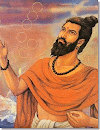Polity and Governance


Paper:- II
1. Polity
2. Governance (NGO, Civil Society, SHG)
3. IR
4. Welfare Schemes and Social Measures
Sources:-
1. Traditional Part of Polity and governance
2. National Litigation Policy
3. Explained IE Articles
4. Monthly Magazines
5. RSTV/LSTV
6. Making of Constitution- Bipin Chandra
Babies:-
1. Representation of Peoples's Act 1951
2. Citizenship Act 1955
3. Motor Vehicle Act
4. Food Security Act
5. MNREGA
6. AFSPA
Mother:- Constitution of India (26th November 1949)
Adopted Laws Like:-
1. IPC 1860
2. Indian Evidence Act 1872
Government of India gave these laws credibility.
Definition of Constitution:- Constitution is the fundamental and the organic law of the nation that establishes:-
1. The conception
2. Character and
3. Organisation
of the government of a nation as well as determine its:-
1. Sovereign Power
2. Extent of powers
3. and the manner these powers are to be exercised.
What is Organic Law?
Organic means basic "Living Element" of life. Constitution has it, because it changes with time.
Our constitution so far has 103 amendments.
Our government conceived because of constitution.
Character:- In the name of Sovereign Allah or in the name of People of India.
Organisation of Government:-
1. Parliamentary System
2. Presidential System
(Shoora- Name of Afghanistan Parliament name).
Local bodies in India do not make Laws.
MLA could also be nominated, the one who represents Anglo-Indian community.
12 Rajya Sabha members are appointed by the president those who are eminent personality from the fields of Art, Science, Literature and Social Services.
One additional field is added in the case of nomination of MLC i.e. Co-operative movement.
Executive is taken out from Parliament/Legislature.
Thus executive is baby of Legislature.
Article- 356:- Centre can dismiss the State gov.
Article-21:- State can take your life as per the procedure established by the Law.
Article-22:- Arrest Procedure
Thus constitution is the Supreme Law of the land. All other law and customs in order to be valid shall have to confirm to/abide by the Constitution.
Example:-
Sabrimala:- Women of certain age are not allowed (Custom); SC struct down in reference to Untouchability (Article-17). SC said the custom is wrong.
Sati, Child marriage (Jeopardise life and Liberty), Dowry, Female infanticide, Devdashi customs.
Santhara practice if Child.
Section-377 of IPC:- Homosexuality is a crime. Now no more a crime under Right to Life. You are free to choose your sexual orientation.
NJAC (99th Constitutional Amendment Act-CAA):- Violating independence of Judiciary. Hence struct down.
Constitution has special legal sanctity (Sacred, pure, holy, pious)
"Special religious sanctity to VEDAS"
"God of Democracy is People- People has written the Constitution"
It has a special legal sanctity since it derives its power and authority from people directly besides being the most fundamental law of this country. Constitution regulates the relationship of Citizen and the State.
Indian constitution is written.
Reason why constitution is BIG:-
Article- 20 to 30:- Religious and Linguistic minorities.
Article-15 (3):- Women and Children
Schedule 5 & 6:- Tribes
GOI Act 1935 itself was too big. Hence core itself was big.
Lengthiest written constitution because of GOI Act 1935 itself was bulky and detailed Act as a basic model of Indian Constitution.
Indian Constitution has taken care of large diversities of INDIA- e.g. provision have been added in the constitution specifically for women & Children, backward classes, people living in backward and tribal areas.
Indian Constitution unlike USA includes not only the provision related to administration of country but also related to the states.
Indian Constitution has special features which are not found in every constitution- e.g. FR, FD and DPSP.
FR in Indian Constitution are accompanied with the limitation on the right unlike American Constitution where limits on the rights are explained not in the constitution but by the court from case to case basis.
Indian Constitution is Organismic by nature i.e. it is open to amendments. (Article- 395 to 460)
"Do not make fool of yourself"






0 Comments